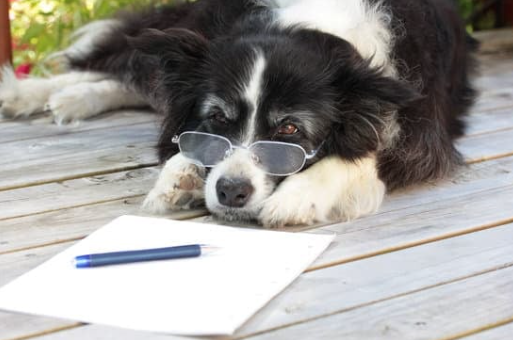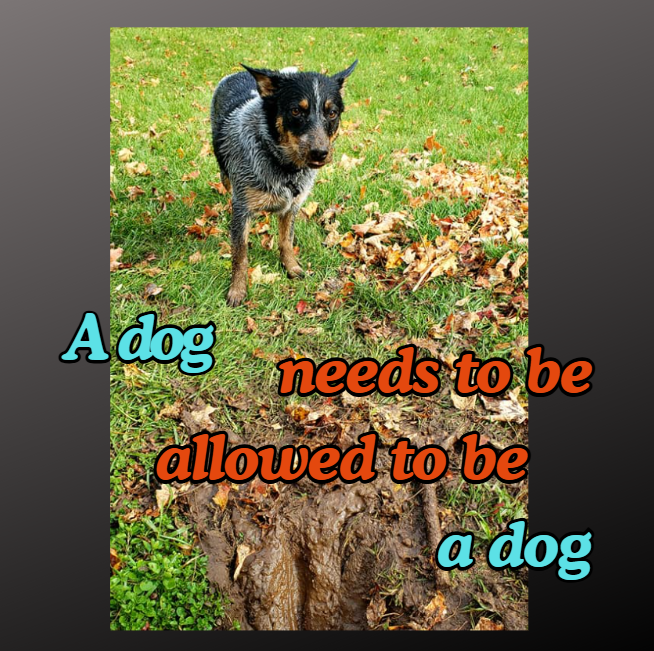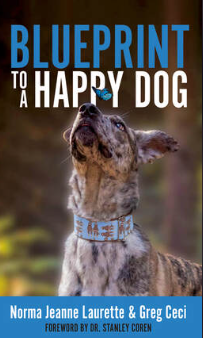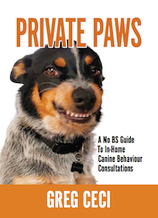Welcome to Our
Pupular Topics & Blogs
Preventative Puppy Maintenance
The most effective way to prevent unwanted behaviour is through early intervention, aimed at shaping your puppy into the adult dog you envision. By not allowing typical puppy behaviours to evolve into ingrained behavioural issues, you are already on the path to preventative training. Addressing potential problems before they have a chance to arise is the key to a successful relationship between you and your dog.
Reoccurring Problems
You can avoid recurring issues by effectively managing the environment. Ensure that the dog cannot get into trouble from the start. Focus on modifying your own actions while striving to understand your dog's behaviour. It's essential to teach a compatible behaviour to replace the undesired one. Ignore negative demands and reward positive actions, helping your dog learn that good things follow when the right choices are made. Require your dog to earn everything it values.
Socialization and Preventing Aggression
Socialization plays a crucial role in the first 16 weeks of your puppy's life. During this time, your pup's mind is still developing, which influences how they perceive the world around them. Introducing your pup to new people, new dogs, and various environments will help build their confidence and strengthen their focus on you. A pup that receives proper socialization and exposure during this period is less prone to react with fear to unfamiliar situations. Aggression is a fear-based reaction. Fear is the leading cause of dog bites.
Exercise
A bored dog is simply one with excess energy, and that energy can lead to destructive behaviours and unwanted habits. Ensure your furry friend engages in multiple sessions of energy-burning and stimulating activities each day. For young pups, the ideal exercise involves off-leash play in a safe, enclosed area (until a solid recall is present). I recommend avoiding dog parks, as they often present an uncontrolled environment with various dogs that may exhibit rough play and potentially harmful behaviours toward puppies and dogs with a passive demeanor. There might be occasions when outdoor exercise for your dog isn't possible due to weather conditions or other reasons. You can address this by engaging in indoor activities like puzzle toys, treat dispensing toys, tug-of-war with rope or plush toys, hide and seek, treat treasure hunts, and playing fetch with a safe indoor ball.
Enrichment and Nutrition
Puppies have a natural instinct to chew and will gnaw on anything within reach. This could mean furniture, shoes, rugs, cords, remotes – you name it! It is essential to have a variety of appropriate chew toys on hand in order to protect your belongings from being damaged, and most importantly to teach your pup what it is allowed to chew. Recommended chew-safe items include frozen, thick bones (with or without marrow), frozen stuffed Kongs, treat balls, and sturdy dog toys like thick ropes and durable, safe plush toys. My dogs have approved the following ingredients for frozen stuffed Kongs: plain yogurt, cooked meat & fish (flaked or cut into small cubes), puréed pumpkin, low-sodium beef, chicken or vegetable broth, sweet potato (mashed), ground kibble and/or natural cookies, mashed peas and carrots, fruits such as blueberries, blackberries, banana and applesauce. Tip: when using liquid ingredients such as meat juices or broth, plug the small hole in the Kong with peanut butter, or cheese.
Harmful Ingredients (found in some common dog foods)
Animal fat, (including poultry fat), animal digest, cane molasses, corn, corn meal, corn syrup, fish meal, food coloring, undefined “meat” (can come from any source: dead, diseased or dying animals which can be contaminated with drugs), meat bone meal, poultry meal, meat meal, propyl gallate, salt, sorbitol, sugar, Vitamin K3 (synthetic), preservatives; BHA, BHT, Ethoxyquin.
Source: The Dog Food Project
Published 05/31/2025
Recognizing Fear In Dogs: A Transformative Perspective
In This Section:
Understanding the symptoms of canine fear & how to prevent it
At first glance, a dog may just seem to be lying quietly under a table. It might look like a dog hesitating with a strange dog or person, a dog yawning during a walk, or a dog clinging loyally to their person in a group setting.
However, once you truly comprehend the nature of fear in dogs, an entirely new reality emerges.
You start to notice the tucked tail, the rigid posture, the darting eyes, and their attempts to become invisible.
Suddenly, what once appeared "normal" becomes a heartbreaking reality. The truth is that canine fear isn't always obvious.
It doesn't always express itself through growling, cowering, or hiding behind furniture.
Sometimes it manifests as a dog that simply "lies there." Other times, it's the dog that seems "calm" but is actually shut down. It can also be the dog that constantly scans its surroundings, unable to find peace.
Once you recognize these signs, you begin to see them everywhere:
In bustling dog parks filled with larger-than-life personalities
In shops, cafés, and family BBQs where humans are enjoying themselves while the dog is merely tolerating the chaos
On city streets amongst traffic, cyclists and pedestrians
This isn't about inducing guilt in anyone; it's about fostering compassion and clarity.
When we acknowledge fear, we can stop blaming the dog. We can shift away from labeling them as dramatic, reactive, or difficult, and start asking, “how can I help them feel safe right now?”
That's when everything transforms.
You become the person who leaves the gathering early because you've noticed that look in your dog's eyes. You’re the one who crosses the street, not because the approaching dog seems aggressive, but because your dog has quietly implored, "Please, no."
You begin to understand what they have always been trying to convey: the lip licks when nothing is wet, the yawns when they aren't tired, and the way they freeze, hoping the world will simply move on.
Others may not grasp your actions. They might question why you're being so careful and protective, insisting your dog needs to "toughen up" or "adjust to things."
But you cannot unhear what you've learned to listen for, nor can you unsee what you've learned to recognize.
Understanding fear doesn’t mean you'll always wrap your dog in bubble wrap. (Though, at times, that may indeed be the best option.)
Instead, it means becoming the person who says, “I see you. I hear you. I’ve got you.” Because once you learn to identify what fear looks like in dogs, you will never unsee it.
And you will continually strive to create a safer world for them.
J.Sauder
How Do I Choose the Right Dog Trainer for Me?
Published 01/26/2025
In This Section:
Considerations When Choosing a Trainer
Types of Training
Conducting Your Research
Reliability Checklist
Choosing the right dog trainer is an important step in determining the future outcome of your relationship between you and your dog. A good trainer will employ positive reinforcement techniques while fostering a supportive environment where you and your dog can thrive. Additionally, it’s important to have an open communication with your trainer. You will want the ability to readily discuss any specific behaviours or concerns and ensure your trainer is willing and able to tailor their approach to meet your needs. Remember, training isn’t just about teaching your dog cues and mannerisms. It’s about building a strong, trusting bond that enhances your overall relationship. With the right trainer, you can set both you and your dog up for a successful and harmonious life together.
Where to Start?
So, you've decided to join many dog owners in their quest to conduct an online search for a reliable trainer. Whether you’ve recently added a new puppy or dog to the family, or you are wanting to seek more specific training, the options are limitless. This essential task can be both enlightening and a bit daunting. To help you streamline your search, here’s a helpful list:
What kind of training are you looking for? Examples:
basic, intermediate, or advanced puppy training
behavioural therapy
aggression therapy
service dog training
puppy imprinting
sports and agility training
group format
one-on-one private sessions
specialty or custom training
Who is in your area ready to assist you?
What services do they provide that meet your needs?
Do their prices align with your budget?
How flexible is their schedule?
Conducting Your Research
Begin by creating a detailed list that reflects your lifestyle, needs, and the goals you wish to achieve. As you progress in your search, refine this list by adding more specific criteria based on your findings. This will help you develop a set of expectations when hiring a trainer and outline your personal plan effectively. Before ever coming to a decision about a trainer, ask yourself, WHO will train your dog, WHAT are you looking to achieve, WHY does your dog need training, HOW are you going to get results and WHERE should the training take place.
A widely used tool for surface research is Google Business Reviews. There is also Yelp, Reddit and other forum-based platforms to express opinions and experiences. All verified business listings enable the community to share their opinions and feedback based on personal experiences, while also allowing them to rate the services provided. It's crucial to remember that summarized business reviews and ratings should not discourage you from exploring the website itself. For instance, I recently searched “positive dog trainers” in my area and found several in the organic search results, each with varying reviews and ratings. One particular facility claiming to employ positive dog training techniques caught my attention with its 5-star reviews. However, when I explored their website further, I found a video demonstrating how to fit a prong collar on a dog. Any trainer who is committed to following positive training standards would not recommend or endorse this tool during training sessions or otherwise. While you have every right to form your own opinion and make your own informed decision on the use of these tools, conducting thorough research is essential.
Should you disregard a business based solely on a negative review? My short answer is NO. Here’s why…
In all honesty, I have mixed feelings about the existence of Google Reviews, more so the credibility of the reviewers themselves in many cases. On one hand, positive reviews can significantly enhance a business's online presence, improve customer experience, and increase SEO, leading to increased sales and demand. Conversely, negative reviews can foster a damaging stigma and erode credibility. While both positive and negative reviews are crucial in determining reputability, Google lacks the means to filter out false or malicious reviews. This can cause a divide a conquer effect between businesses amongst consumers and each other, as well as result in an ethical business being overlooked.
Last, but not least. Who’s your trainer and how do they uphold their services?
Your first interaction with your trainer is crucial and should provide you with valuable insights. First impressions matter significantly. Just like you with a family doctor, a legal representative, or a first responder, you are placing your dog's well-being in the hands of your trainer. Ignoring this important step can lead to unfortunate, and even tragic outcomes.
Dog training revolves around equipping humans with the skills to interpret their dog’s behaviour and respond appropriately. Equally crucial is your trainer's skill in providing the essential tools for reaching your goals in a straightforward and understandable way. For example, consider a dog that learns to associate a positive reward with making the right choice. To achieve this outcome, your trainer must apply the same positive approach with you as they do with your dog, thereby enhancing both your learning potential and overall success. The most common complaints I hear in the dog training industry:
“my trainer always seems too busy to respond”
“the class was overcrowded and chaotic”
“training cost me a fortune and we learned absolutely nothing. We had to find a new trainer”
“my trainer was very unprofessional and derogatory”
“we’ve been on a waiting list for months with no communication”
“the trainer used harsh methods and traumatized our dog”
“our classes were cancelled, and we didn’t receive a refund”
“my dog was attacked by another dog during training”
“my trainer raises their voice when I’m doing something wrong. I’m there to learn.”
^^^^^ These are the reasons why first engagement, combined with thorough research is so important. ^^^^^
In this field, dogs, like all animals, can exhibit unpredictable behaviour. Fear-based bites can be devastating, not only for the bite victim but also for significantly impeding training progress. It's crucial to trust that your trainer will prioritize the safety of both you and your dog. Several years ago, I placed my trust in a dog training mentor to facilitate a supervised introduction with a German Shepherd while my husband and I considered adopting the dog. Although we were informed of some reactivity issues, I believed my mentor would take all necessary precautions to ensure a positive interaction. Unfortunately, that was not the case. My husband left the training facility with puncture wounds, and as someone who at the time was an inexperienced aggression handler, it left me feeling defeated. While I could instinctively place the entire blame on the mentor who ensured our safety and failed, I also take accountability for ignoring the red flags that surfaced throughout our business relationship. Note that in all cases, accountability is minimal in comparison to the end result.
Below, I have put together a checklist of important factors to consider when assessing the reliability of your future dog trainer specific to your needs. Wishing you the best of luck on your journey!
Pre-training consultation and availability
Training techniques
Detailed Behavioural Assessment and Evaluation form to understand you, your dog, and your future objectives
Proof of formal education from a reputable dog training organization
Ability to provide community references, including reviews, testimonials, or references from veterinarians, fellow dog trainers or other dog owners
Clear explanations of services, requirements and terms/conditions
Transparent refund policy and eligible criteria, including scheduling changes and cancellations
Materials and resources for training maintenance, including unlimited guidance
Business Insurance Certificate (where applicable)
J.Sauder
Can’t Find What You’re Looking For?
The information on this page will be added and updated continuously. If you’re looking for specific information or answers to your questions, please reach out! I’m happy to help!









